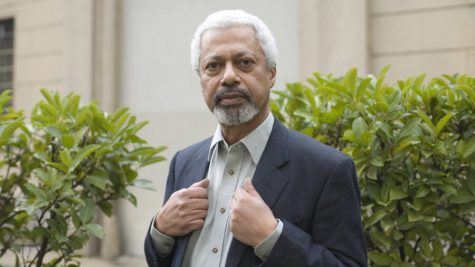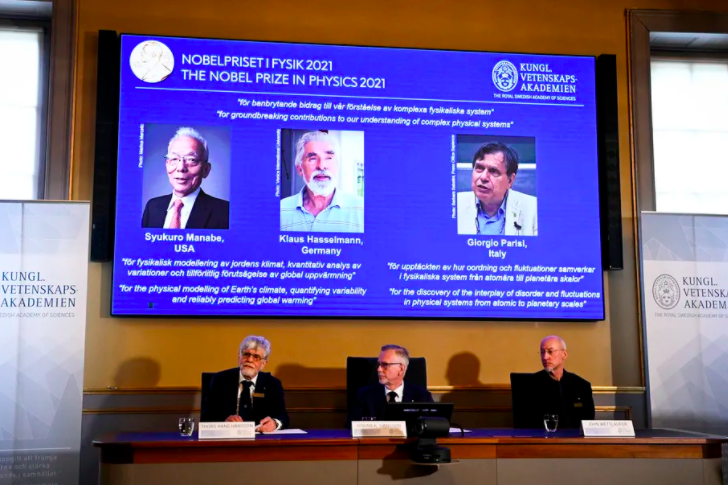Nobel Committee Honors 13 Scientists and Writers
There are six main categories for the Nobel Prizes given out every year: physics, chemistry, medicine, literature, peace, and economics. This year, the prizes went out to thirteen individuals. The physics award went to Syukuro Manabe, Klaus Hasselmann, and Giorgio Parisi for modeling the Earth’s climate and making a reliable prediction of the impacts of global warming. In the chemistry category, the Nobel Prize went out to Benjamin List and David MacMillan for the development of asymmetric organocatalysis. The Nobel Prize in Medicine went to David Julius and Ardem Patapoutian for making discoveries on receptors for temperature and touch. In the literature category, the Nobel Prize went to Abdulrazak Gurnah “for his uncompromising and compassionate penetration of the effects of colonialism and the fate of the refugee in the gulf between cultures and continents.” The Nobel Peace Prize went out to both Maria Ressa and Dmitry Andreyevich Muratov “for their efforts to safeguard freedom of expression.” Sverige’s Riksbanken Prize in Economic Sciences award was divided between David Card for his account on labor economics and Joshua D. Angrist and Guido W. Imbens for their contributions on the analysis of causal relationships.

Alfred Nobel, an inventor and industrialist, died in 1896, and, following his death, the Nobel Foundation was established. The Nobel Foundation was set up to provide the actions of will and administer his funds for the Nobel Prizes. Alfred Nobel instructed in his will that the prizes were “to be given out to those who, during the preceding year, shall have conferred the greatest benefit on mankind.” The Nobel Prizes originally had five categories and were first given out on the fifth anniversary of Alfred Nobel’s death on December 10, 1901. The sixth category, Sverige’s Riksbanken Prize in Economic Sciences in Memory of Alfred Nobel, was later established in 1968 and first given in 1969. Alfred Nobel specified that the Nobel Peace Prize should be conferred by the Norwegian Nobel Committee in Oslo, the prizes for chemistry and physics by the Royal Swedish Academy of Sciences, the prizes for medicine by the Karolinska Institute, and the prizes for literature by the Swedish Academy. The Royal Swedish Academy is now also responsible for the selection of the recipient for the economics prize.
In order to select recipients, the Nobel Foundation first chooses 6,000 people across the world to submit nominations for the Nobel Prizes. The foundation receives about 1,000 nominations for each category with about 100 to 250 nominees. The announcement of the award winners happens between October and November, but the selection process begins early autumn a year prior, and the selection committee starts going through the nominees on February 1. While reviewing all the propositions and nominations, outside consultants who are experts in the category may participate to help point out the significance of the proposition. The committee selections are then returned to the prize-awarding institutions in September and October.







